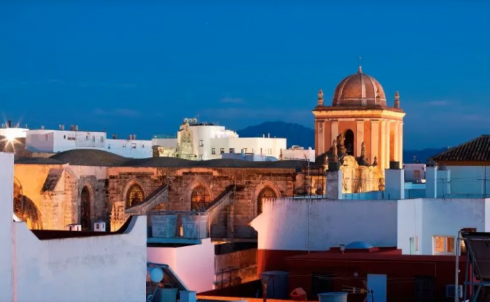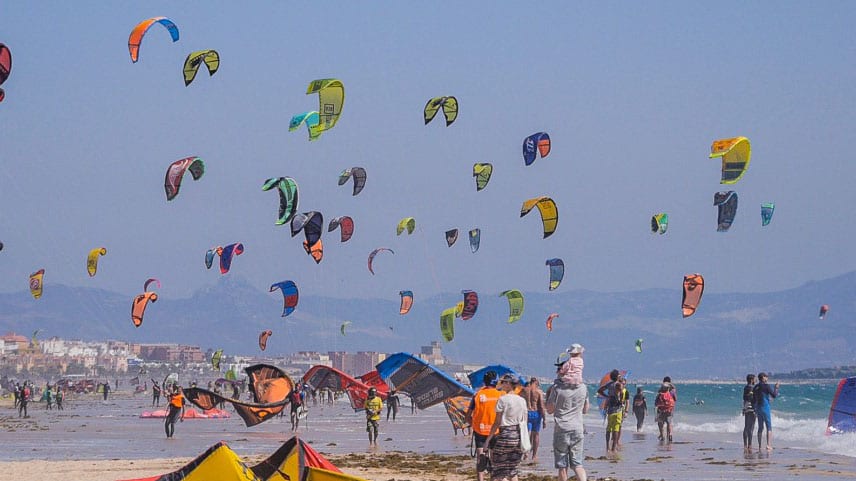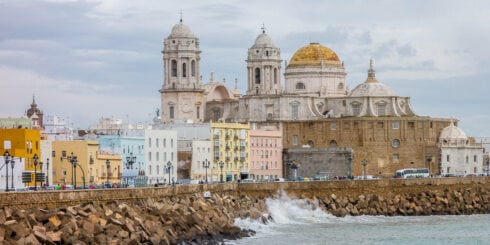SPAIN’S southernmost town has joined in the revolt against ‘predatory’ mass tourism after a new group started plastering messages around the town.
A resort town of 18,000 ever popular with surfers, kitesurfers and all kinds of campervan enthusiasts, Tarifa has long carved out a reputation among a certain type of traveller.
But their numbers have swelled ever more each year until the effect has been to turf local people from their own homes.
The pressure group Adelante Andalucía complained in a press release that over 90% of the town’s housing stock is now dedicated to tourism.

This has created ‘a model of precarious, seasonal employment which creates a demand our resources cannot meet.’
It warn that the environmental impact is devastating, with the region’s limited water resources being overstretched by luxury developments such as golf courses.
“Tarifa does not live from tourism; tourism lives from Tarifa,” spokesperson Alejandro Gutierrez stated.
“Our public services are struggling to cope with the influx of tourists, especially during peak season when the population can swell by as much as seven times.”
They highlighted the absurdity of the situation, noting that even essential workers like healthcare professionals struggle to find accommodation during the summer months.
“It’s clear that the tourism industry is exploiting Tarifa, rather than the other way around,” the group asserted, before declaring ‘Andalusia is not for sale, Andalusia fights back’.
The campaign is calling for a more sustainable approach to tourism, one that benefits local communities and protects the environment.
One new proposal from Spain’s Socialist Party government is to require all tourist accommodation in an apartment block to have the approval of the homeowner’s association before it can be used.
Essentially, the rest of the residents in the building would have to say yes before an Airbnb or other rental apartment could begin to operate.
According to the draft proposal, which has been seen by newspaper El Pais and radio network Cadena Ser, this new rule could not be applied retroactively, meaning that existing tourist accommodation would not be affected.
It comes at a time when regular protests are being held across the country to demand a new model of tourism and protest against the negative effects the sector is having on Spaniards’ day-to-day lives.
Click here to read more Cadiz News from The Olive Press.








